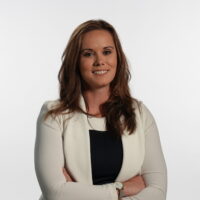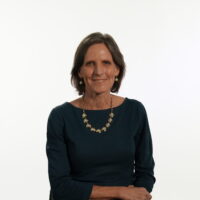Marian Zapata-Roussa, Partner at Snell & Wilmer
How did you first get involved in mentoring, and what motivated you to become a mentor?
Over the course of my career, I’ve been fortunate to have had a number of mentors help me guide me in the practice of law. I experienced firsthand how mentorship plays a crucial role in one’s professional development and in securing career opportunities. The tremendous gratitude I have for my mentors motivates me to give back as a mentor to others. In turn, it has been an honor to mentor numerous associates and attorneys across the profession.

What qualities do you think are most important for a mentor to possess?
The most important qualities for a strong mentor to possess are the ability to listen, motivate, and display great empathy for each mentees’ unique talents and experiences. The mentors I’ve worked with over the years have all shown me these attributes and I work to employ them in my own mentee relationships.
How do you approach building a strong and trusting relationship with your mentees?
Regular touchpoints, virtually or in-person, help build strong, trusting, and lasting relationships. Connecting with one another to discuss goals and celebrate successes helps build a bond and ultimately makes a difference for the other individual to feel supported and valued for their talents and strengths. In today’s technological world, connecting has been made easier than ever before.
As a female mentor, have you faced any unique challenges, and how did you overcome them?
Balancing multiple roles between professional and personal responsibilities has proven a unique challenge in pursuit of a career in law. By seeking support, leveraging resources, and prioritizing responsibilities I have paved the way to the career I maintain. Working with great people and having a special company culture also makes a world of difference, which affords me a platform for success.
Can you share a memorable lesson or piece of advice that you’ve learned from your own mentorship experiences
A piece of advice for those seeking to engage in mentoring or to grow their existing mentoring relationships is to appreciate how gratifying mentoring is as a truly symbiotic process for personal and professional growth. In giving to my own mentorship relationships, I have always gained so much in return, which further motivates me to keep striving to achieve even greater success.
Kate Conway - Vice President of Government Relations at Verra Mobility and 2024 ATHENA Young Professional Finalist
How did you first get involved in mentoring, and what motivated you to become a mentor?
Mentoring, in its earliest form, was involvement in youth team sports. I was often tapped as a team captain and enjoyed being a peer mentor — leading by example and steering the direction, attitude, and conduct of the team. In college, I had a mentor and professor, Dr. Astrid Sheil, whom I admired greatly for her professionalism, presence, and exceptionally high expectations. She drew out the best in me and has continued to have a profound impact. I aspire to tap into that potential in others that I mentor. It’s a gift and an art to connect with someone and help them see in themselves what you see in them.

What qualities do you think are most important for a mentor to possess?
Approachability, generosity, and experience. There are plenty of subject matter experts with vast experience, the best in their fields, but that talent and experience are wasted if not shared with others. A mentor who is approachable and generous with their time and talents is a mentor who takes the time to develop others. I’ll add that mentoring is a two-way street. The most important quality of a mentee is coachability.
How do you approach building a strong and trusting relationship with your mentees?
By listening. And by giving space and sharing space – whether that’s making yourself available and fully present for those you mentor or giving mentees a seat at the table to provide them with growth opportunities and stretch goals. I take a genuine concern in the welfare, development, and success of those I mentor.
As a female mentor, have you faced any unique challenges, and how did you overcome them?
I’ve worked in industries predominantly led by male leaders: military service, engineering, maritime shipping, and government roles. In my experience, very few men are obstacles or aim to stand in the way of your success. In healthy organizations, there frankly isn’t room for that. Most men are allies. And some are true champions for women in the workplace. Leaders in a healthy organization recognize high performers for their merit. The path to success can often look different for women than men. Female mentors are particularly critical in providing tools for others to overcome barriers.
Can you share a memorable lesson or piece of advice that you’ve learned from your own mentorship experiences?
Good leaders are good learners. Be curious, be courageous, be confident. Admit what you know and what you don’t yet know. Become comfortable with being vulnerable. Take space. And pay it forward.
Christina Spicer, Co-CEO, Girl Scouts-Arizona Cactus-Pine Council
How did you first get involved in mentoring, and what motivated you to become a mentor?
I became involved in mentoring because I have experienced the transformative power of incredible mentors in my life and wanted to pay it forward. I actively seek formal and informal mentorship, knowing firsthand how deeply it can impact one’s personal and professional journey.

What qualities do you think are most important for a mentor to possess?
The essential qualities a mentor should have include curiosity, active listening, and the ability to ask critical questions. Embracing these qualities fosters a deeper connection and opens new opportunities in the mentor-mentee relationship.
How do you approach building a strong and trusting relationship with your mentees?
I feel honored to have some incredible mentees in my life. I believe that in order to build the trust necessary for a lasting relationship, we must approach each other with genuine curiosity and a willingness to learn. This way, wisdom can flow between us.
Can you share a memorable lesson or piece of advice that you’ve learned from your own mentorship experiences?
Being personally and professionally involved in people’s lives is a blessing. Having someone trust and respect your guidance is a great responsibility and privilege that I do not take lightly.
Shannon Clancy, CEO of St. Vincent de Paul, and the 2024 ATHENA Award in the public sector
How did you first get involved in mentoring, and what motivated you to become a mentor?
All of us are role models and mentors in our own way. People are always watching what we do, what we say, how we treat others. Many of my best mentors have been informal relationships where I am watching and learning from others that I admire and respect. My gratitude for the lessons and counsel that I have received from them over the years motivates and inspires me to share those learnings, challenges, and triumphs with others to help pay it forward and support others’ growth and development. Over the course of time, it’s lifting up, supporting and celebrating others that becomes far more rewarding than personal accomplishment.

What qualities do you think are most important for a mentor to possess?
The most important qualities of a mentor are patience, listening skills, a love of lifting up and supporting people, and the ability to earn someone’s trust by genuinely caring about and wanting the very best for them.
How do you approach building a strong and trusting relationship with your mentees?
One of my mentors used to say that 99.9% is just showing up. Our presence and our support especially when things get hard often speak far louder than our words. How do we make room for the voice and presence of others in a room, in a conversation, in a project? How do we offer honest and supportive feedback to help people grow? How do we give others opportunities to shine and to become the best version of themselves?
As a female mentor, have you faced any unique challenges, and how did you overcome them?
I have been very blessed to be supported by men and women over the course of my personal and professional life—many people who have helped me to grow. All of us experience challenges in different ways. It’s part of being human. As a mentor and colleague, I believe it’s important to share those challenges with others, including what I learned from them and how I continued to grow and develop not despite those challenges but because of them.
Can you share a memorable lesson or piece of advice that you’ve learned from your own mentorship experiences?
Don’t forget to take a break between the points—from Steve Zabilski, former St. Vincent de Paul CEO. A reference to a tennis match where the player has to know how to find the physical and mental rest and clarity to continue to play well in the match. Sometimes when we are in the thick of it, we try to work harder and harder with poorer and poorer results. In those times, I continue to remind myself to try “softer” not harder and to give myself the breather and the grace that helps to settle my mind and heart for the next set of points.


